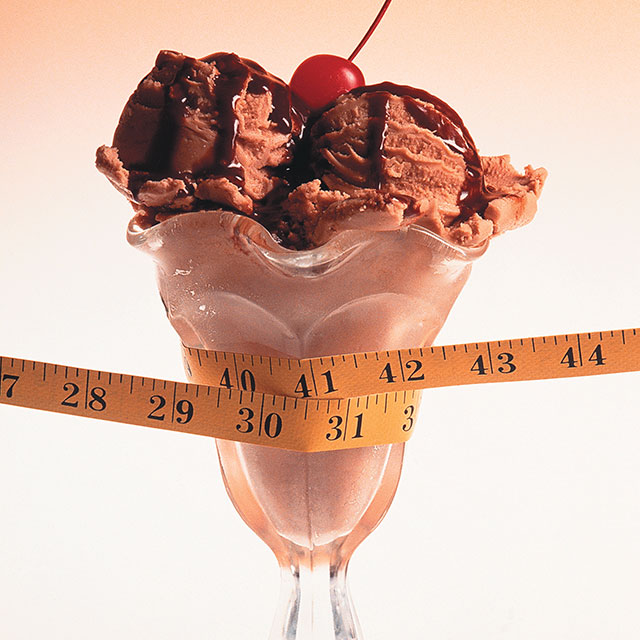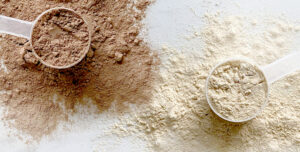Wouldn’t it be great if we could just eat whatever we wanted and never gain weight? Unfortunately, our bodies don’t operate that way, and as we all know, fat happens, sometimes a lot. Ever wondered why? Sure eating unhealthy food is a direct result, but have you ever wondered what your body does with what you put in it?
Why does fat happen?
Fat Facts
The specialized fat-storing cells in the body are called adipocytes. These cells are designed to store ample energy and can readily take up seemingly unlimited amounts of fat. The more fat they store, the larger these cells get. Cells in adipose tissue are generally the largest in the body because of this ability to store high levels of fat. So the more calories you take in that get converted to fat, the bigger these cells will continue to grow.
Fat is the nutrient with the highest amount of calories per gram (fat has 9 cal/g, alcohol has 7 cal/g, and carbs and protein have the lowest amounts at 4 cal/g). You can cut fat from your diet but still become fatter by eating too many carbs, proteins, and other sources of calories. The key is to monitor your overall calorie intake, not just how much fat you eat.
So that’s what happens, but how can you prevent it?
Weight Loss Tips
Eating healthier and working out will obviously help you reach your weight loss goals immensely, but here are some tips to help shed that unwanted fat even further.
Cardio
Sweating the pounds off by running, biking or using whatever piece of equipment your fond of found in your local gym is obviously a no-brainer when it comes to weight loss. What isn’t so obvious is the need for switching up your cardio plan, which even on the best of days isn’t always the most exciting half hour of your life. Switch things up every month or so. Your body adapts to any repetitive activity more quickly than you probably think, so the longer you use the same routine, the more likely you are to get stuck in a plateau and limit the changes you can make to your body.
Heart Rate
Train at an intensity level that allows your body to rely more on stored fat than sugars. Exercising at an optimal heart rate zone will give you better results.
Last Meal
Don’t eat anything too calorie-rich at the end of the day and try not to eat your last meal after 7 p.m. Try to make protein and carb sources with a lot of fiber the main parts of your final major meal of the day.
Water
Another obvious one, but make sure you’re drinking a lot of water. Not only does it keep you hydrated, it also keeps you feeling fuller for longer, preventing you from grabbing not so healthy snacks throughout the day.







